By Bobby Ellis
bobby.ellis@education.ky.gov
As the students walk into the lab at the Locust Trace AgriScience Center in Lexington (Fayette County), they’re met with tables of food – old food.
Samples of raw hamburger, slices of cheese, chopped apples and loaves of bread all sit on tables ready to be examined. Some of the samples are only a few hours removed from a refrigerator, but most of the food samples have spent days in a greenhouse, exposed to the elements. Today’s lesson is about food decay and how it can cause disease outbreaks.
As the students gather around their respective food item, teacher Jacob Ball tells them to examine the food items. Look at them, touch them, smell them.
“In my classroom, I try to do a bunch of hands-on, fun activities,” said Ball. “Whatever I’m going to teach, I try to do it with the student in mind.”
Ball was named the National New Teacher of the Year by the Association for Career and Technical Education. The award is given to educators with three to five years of experience who have made significant contributions toward innovative technical education programs.
One of the ways that Ball makes his classes different is to show students the different careers available within agriculture.
“A lot of people don’t traditionally think of agriculture as a high science, high math field,” said Ball. “A lot of people wouldn’t look at what we’re doing here today as agriculture, but food science is a huge part of agriculture.”
Teaching can be the difference in how students perceive a field of study and make their life choices, said Ball.
“Honestly, I had no real interest in agriculture as a career path until I got to high school and took an agriscience class because I heard the teacher was a really good teacher,” said Ball.
Ball uses the Center for Agricultural Science Education (CASE) curriculum as a way to help engage his students, along with the online forum National Association of Agricultural Educators Communities of Practice as a resource.
“I enjoy teaching it because it’s a career field where it can be tied into ‘everyone has to eat,'” said Ball. “There has to be a ‘why’ to what they’re learning.”
The idea behind Ball’s method is to challenge his students, engage them through hands-on activities and tie what they’re learning in the classroom into real-world situations.
“It makes my job a lot easier,” said Ball. “I didn’t get into teaching to win awards. I got into it to teach kids.”
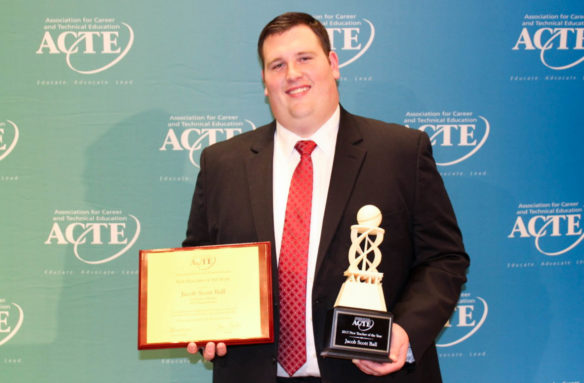
Jacob Ball poses with his 2017 New Teacher of the Year Award presented by the Association for Career and Technical Education.
Photo provided by Jacob Ball
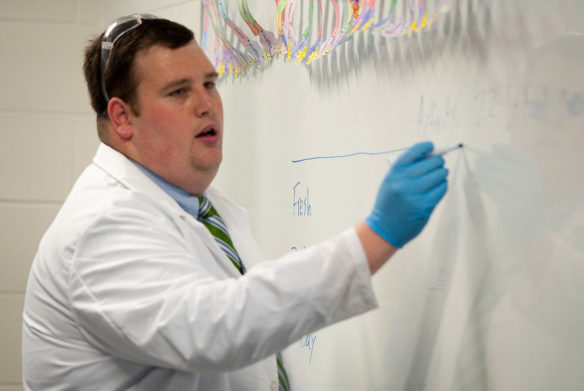
Jacob Ball, an agriculture instructor at Locust Trace AgriScience Center (Fayette County), writes instructions on a board during one of his agriculture science classes. Ball was awarded the 2017 New Teacher of the Year award by the Association for Career and Technical Education.
Photo by Bobby Ellis, Jan. 17, 2017
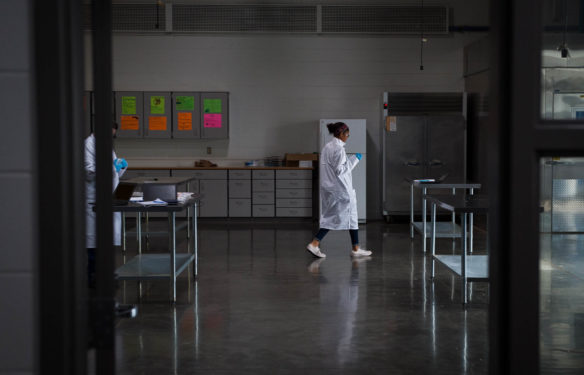
Cameron Stribling takes her lab equipment back to her locker after an activity in Jacob Ball’s class.
Photo by Bobby Ellis, Jan. 17, 2017
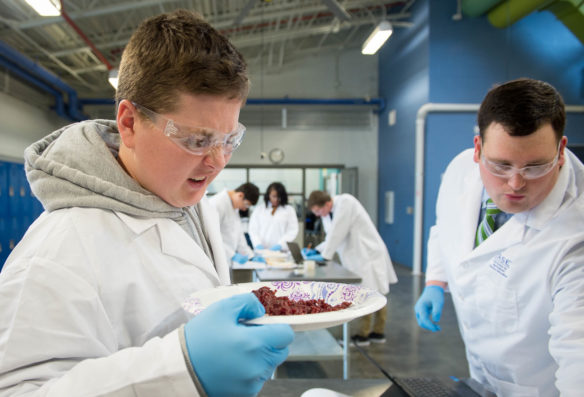
Jacob Saal reacts after smelling five-day-old hamburger during a lab activity meant to show the effects of decay on food in Jacob Ball’s class.
Photo by Bobby Ellis, Jan. 17, 2017
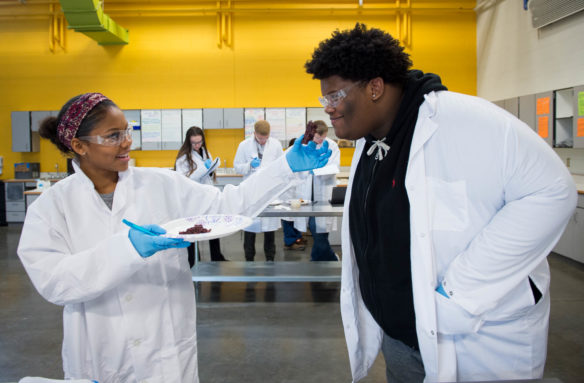
Cameron Stribling, left, and Djuan Richardson smell 10-day-old hamburger during a lab activity in Jacob Ball’s class at the Locust Trace AgriScience Center (Fayette).
Photo by Bobby Ellis, Jan. 17, 2017
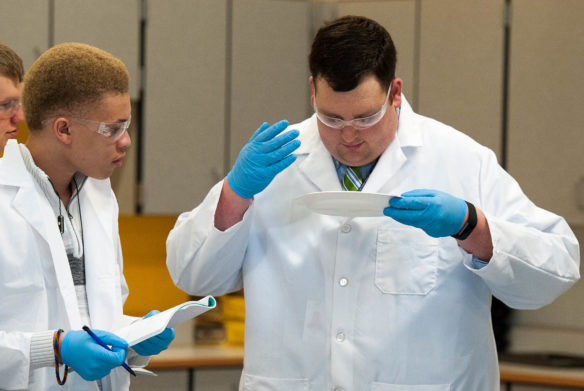
Jacob Ball, right, shows Cameron Rose how to smell rotten food during a lab activity. Ball said that allowing students to interact with tangible items helps students stay interested in the material.
Photo by Bobby Ellis, Jan. 17, 2017
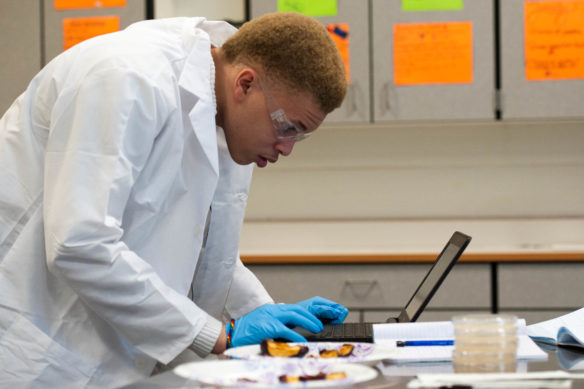
Cameron Rose, a senior at Dunbar High School (Fayette) writes down notes during a lab meant to show the effect of decay on food.
Photo by Bobby Ellis, Jan. 17, 2017
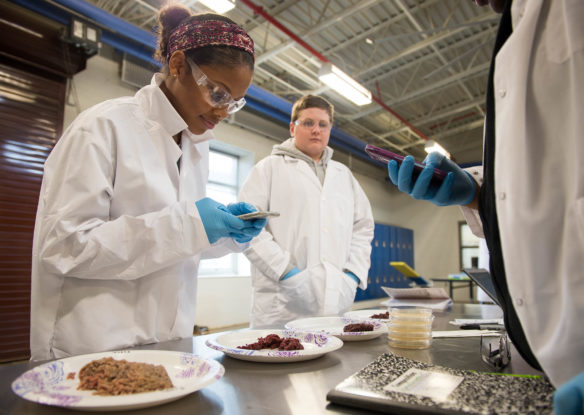
Cameron Stribling, left, a junior at STEAM Academy (Fayette) photographs spoiled hamburger to document it for a lab project during Jacob Ball’s class at the Locust Trace AgriScience Center.
Photo by Bobby Ellis, Jan. 17, 2017
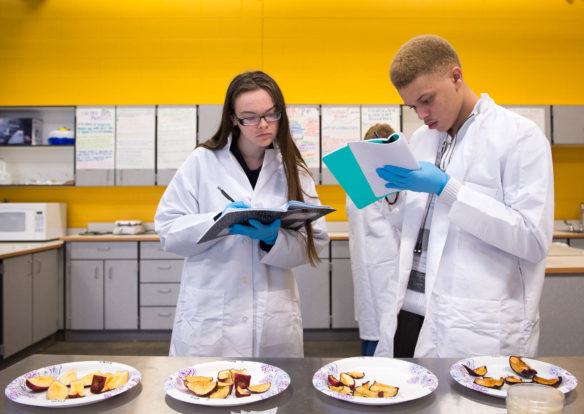
Willa Bramagen, left, a sophomore at Lafayette High School, and Cameron Rose, a senior and Dunbar High School, take notes on the effects of decay on apples during Jacob Ball’s class at the Locust Trace AgriScience Center.
Photo by Bobby Ellis, Jan. 17, 2017
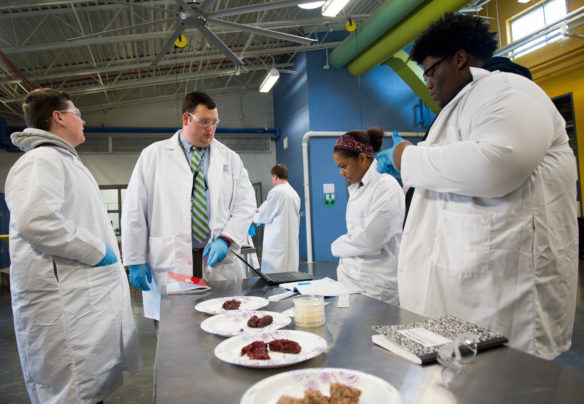
Jacob Ball talks with students during a lab about food decay and food disease outbreaks. Students examined food such as cheese, bread and hamburger that had been left out for different periods of time.
Photo by Bobby Ellis, Jan. 17, 2017

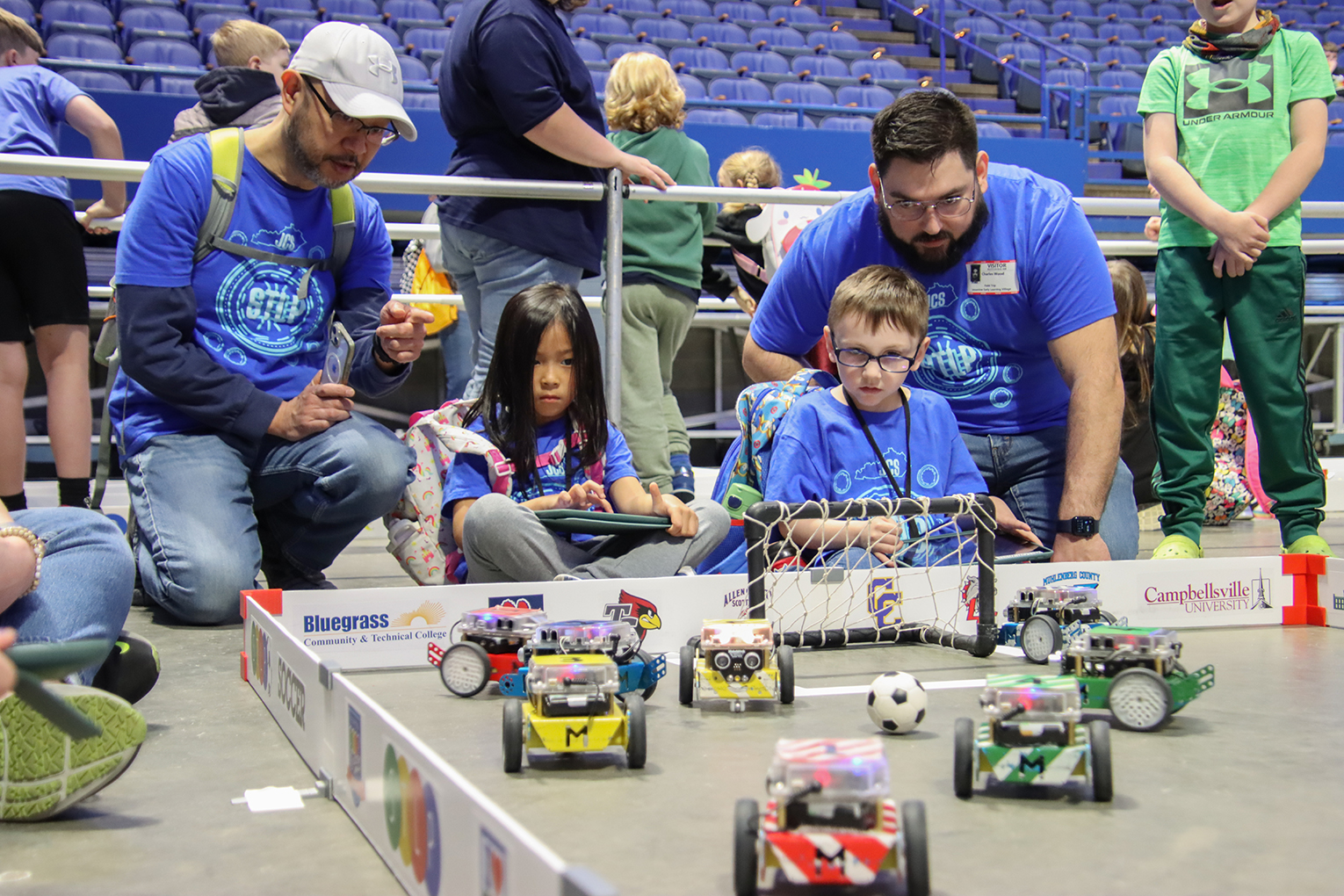
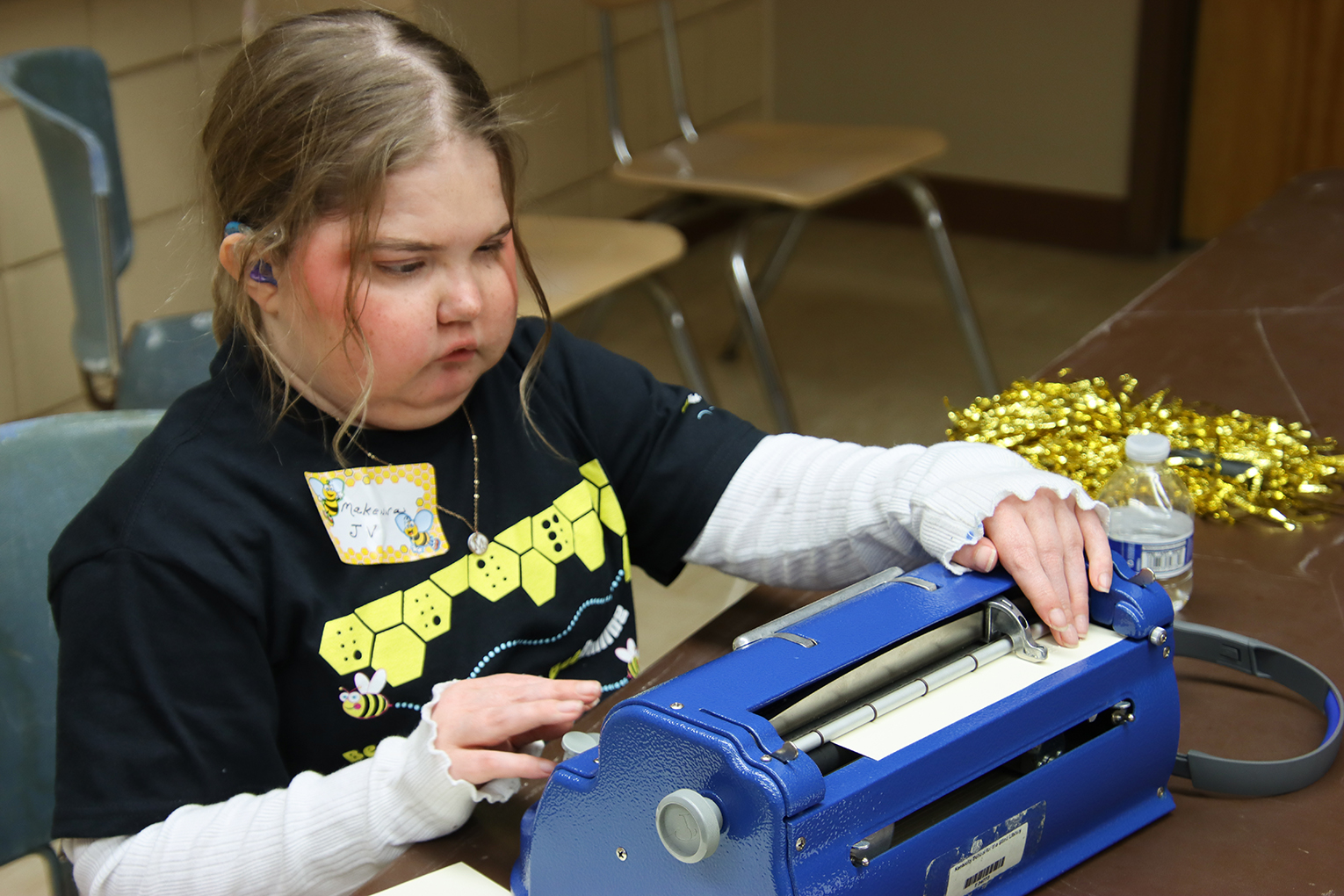
Leave A Comment